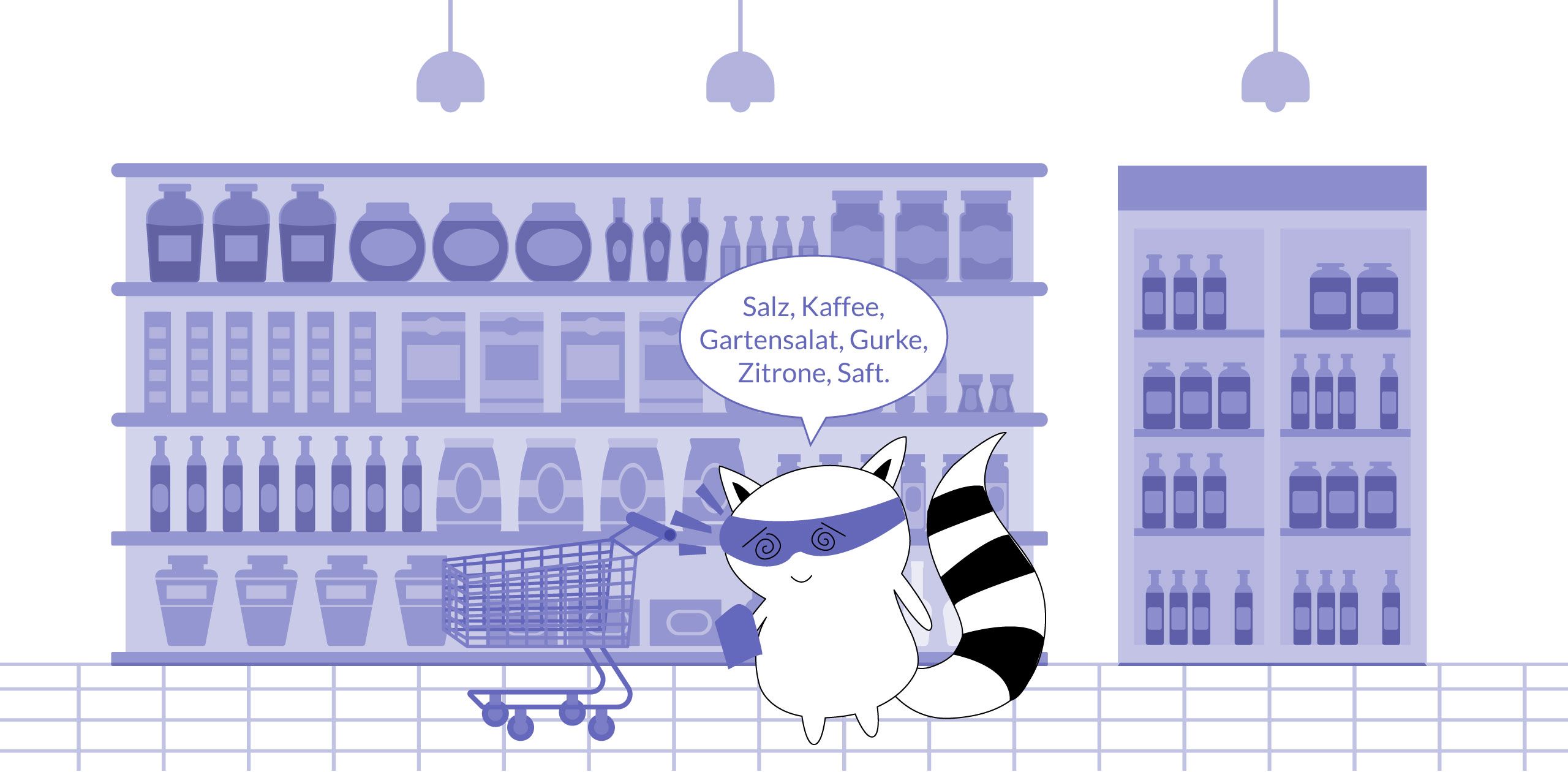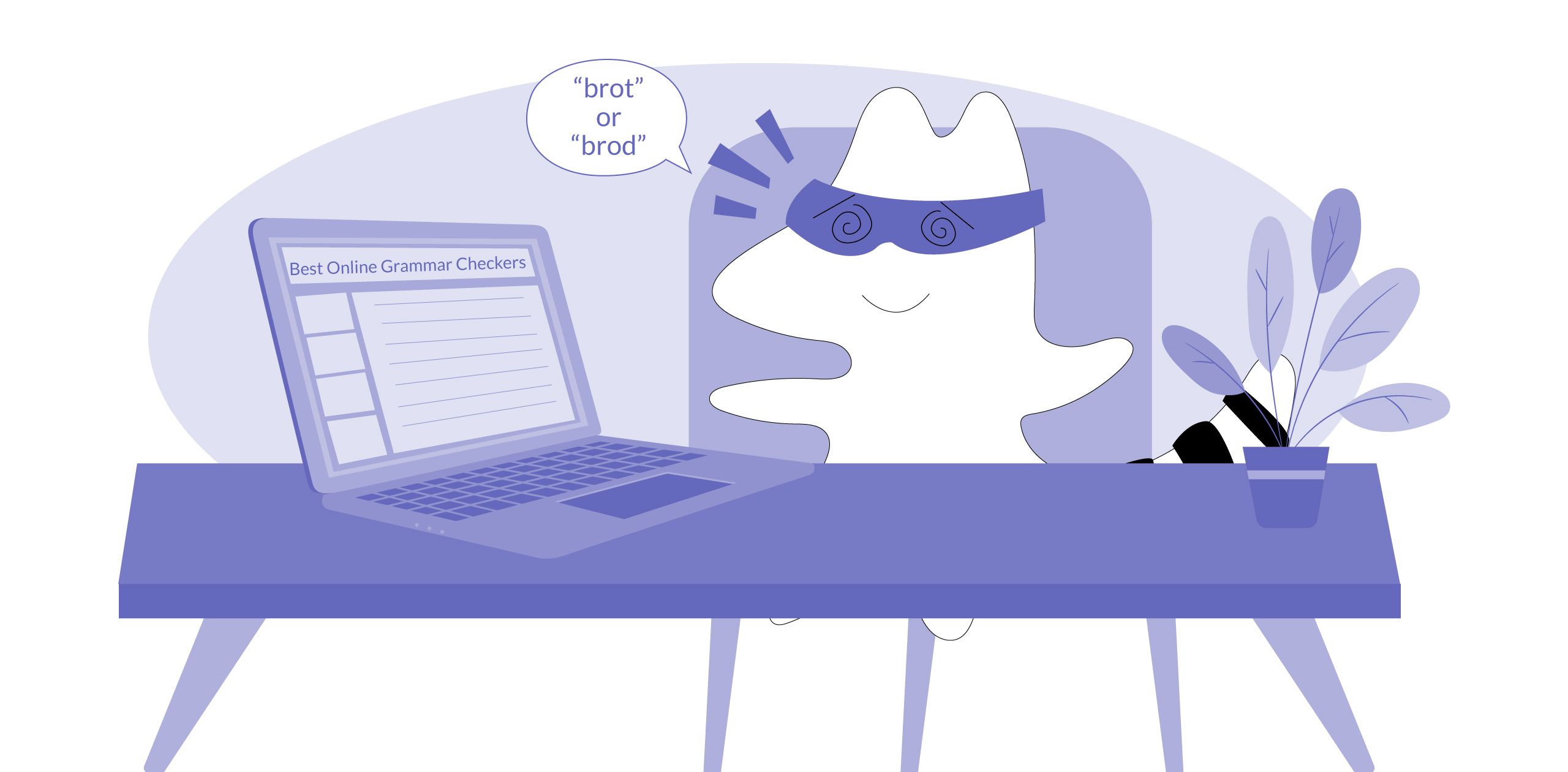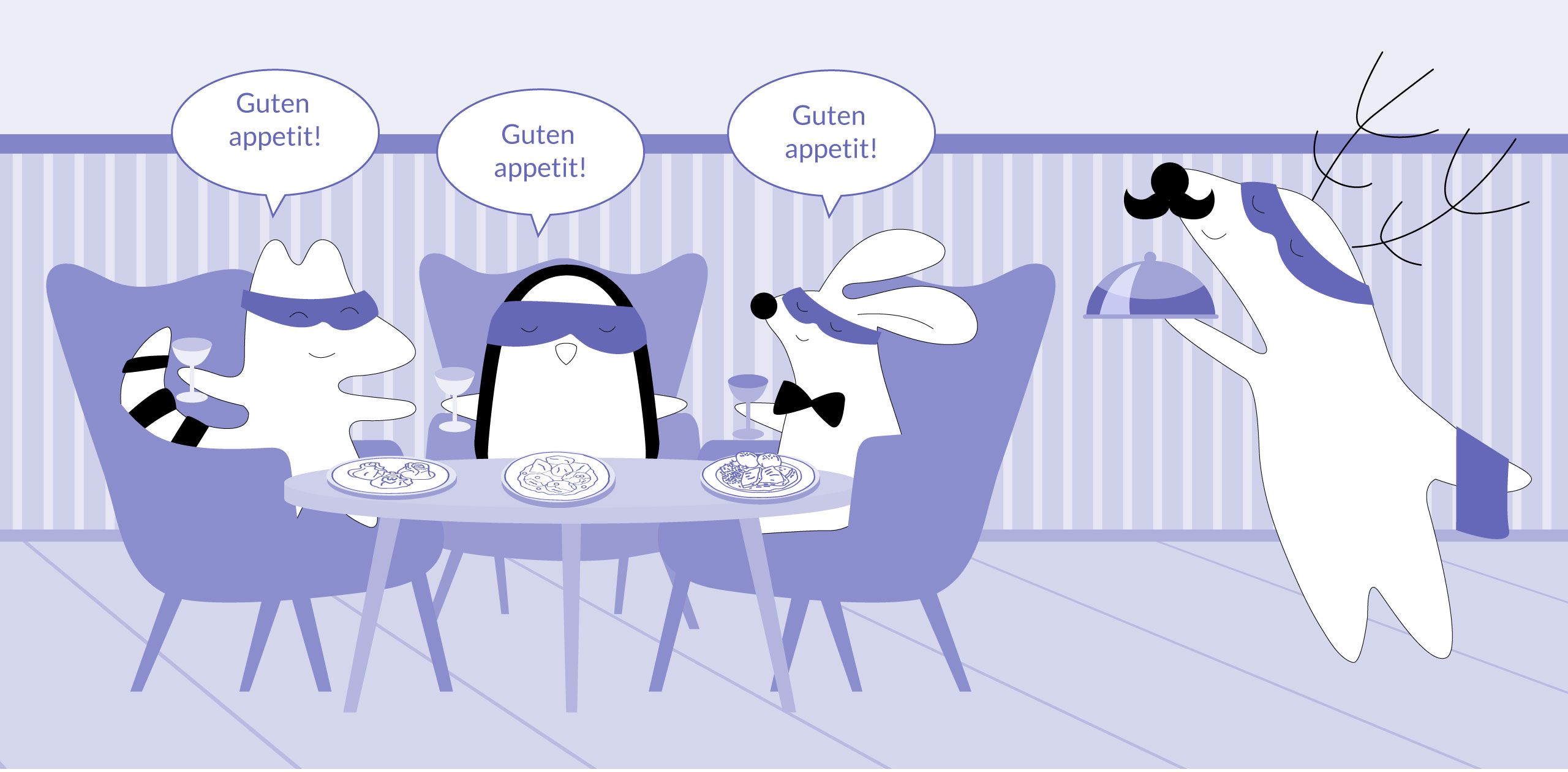
For most non-German speakers, the German language sounds harsh and reminds them of everything but love. But even though German might not be the most romantic language, German people have hearts and feelings and can express their love in many ways -- and you can see that clearly in many works of German literature and art.
If you plan on visiting Germany or other German-speaking countries in the future, you should definitely learn how to express your feelings towards somebody in the German language. There are many goodhearted people in the country and there are many opportunities to fall in love.
In this article, we will prepare you for many different emotional situations and explain more about the ways German people express their feelings to somebody else. Read on to learn how to say “I love you” in German in different ways.
Learn German with Langster
“Ich Liebe Dich” – the Deepest Way to Say “I Love You” in German
We will start with the most traditional expression through which Germans show their deep love for somebody.
To express such feeling, you can say “Ich liebe dich,” which is a German equivalent to the English “I love you,” and in most cases is used in a romantic relationship.
German
English
Ich liebe dich
I love you
What Does it Mean?
The phrase “Ich liebe dich,” works exactly like the English expression “I love you.” In German, there is the same sentence structure: Subject - Verb - Object.
Here, the word “Ich” (I) is the subject, followed by the verb “liebe” (love) in the first person singular and the object “dich” (you). The infinitive form of this German verb is “lieben” or “to love.”
To express their love even more, Germans often add different words or phrases after the original phrase “Ich liebe dich,” so you can hear expressions like:
German
English
Ich liebe dich so sehr
I love you so much
Ich liebe dich über alles
I love you more than everything
Ich liebe dich von ganzem Herzen
I love you with all my heart
Ich liebe dich bis zum Mond und zurück.
I love you to the moon and back.
When to Use it?
In every case, be aware that Germans are a bit introverted as a culture. They use the phrase “Ich liebe dich” with caution and usually take some time until they are sure about their feelings before this sentence comes out of their mouth.
A general rule in German culture is “I mean what I say.” You might have noticed that Germans take appointments very seriously and show up precisely when they said they would. This is why you will never hear a German speaker using this phrase impulsively.
Well, it is the same with “Ich liebe dich.” If somebody says this to you, this person is probably deeply in love with you. If you feel the same about the person, you can respond with "Ich liebe dich auch ” - "I love you too.”
Besides the verbal expression, there are some other ways in which Germans express their love, especially men. On the night of the 1st of May, there are many interesting traditions that happen in different regions of Germany. People show their love to each other without saying a word.
In the West, men cut birch trees, decorate them, and put them in front of the person’s house they love. In the South, they draw lines out of chalk between their house and the house of their loved ones.
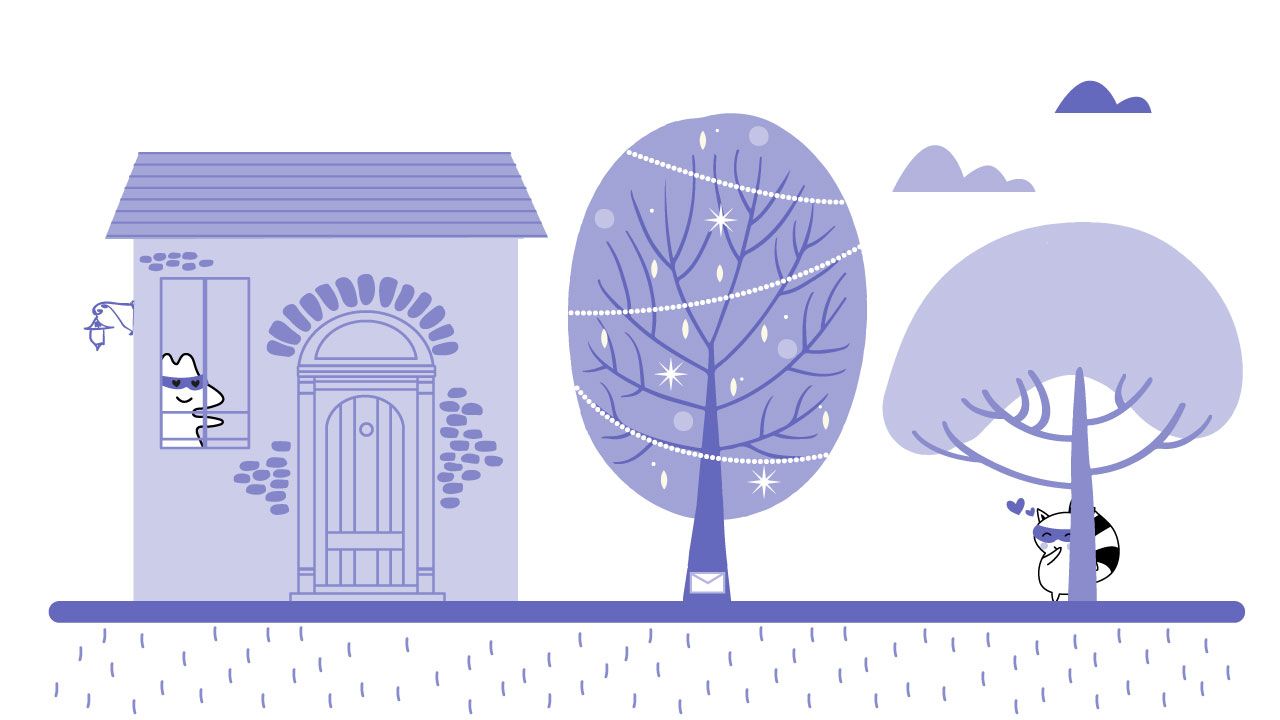
“Ich Bin in Dich Verliebt” – A Beautiful Way to Confess your Feelings to Somebody
“Ich bin in dich verliebt” is a very brave sentence that a friend might say to you at some point.
At the beginning of a romantic relationship or when you are dating somebody, you might not say that you are deeply in love with the other person. However, you might begin to feel that there is more than just friendship between you.
You might start feeling nervous around the other person and you might feel butterflies every time you meet (or even when you just think or talk about them).
Your friends will probably ask you “Bist du verliebt?” which means “Are you in love?” or “Hast du dich verliebt?” (Have you fallen in love?) If you discover that this is the case, you might want to confess your feelings to your chosen one.
A very beautiful way to do this is to use the phrase “Ich habe mich in dich verliebt” (I have fallen in love with you).
German
English
Ich habe mich in dich verliebt
I have fallen in love with you
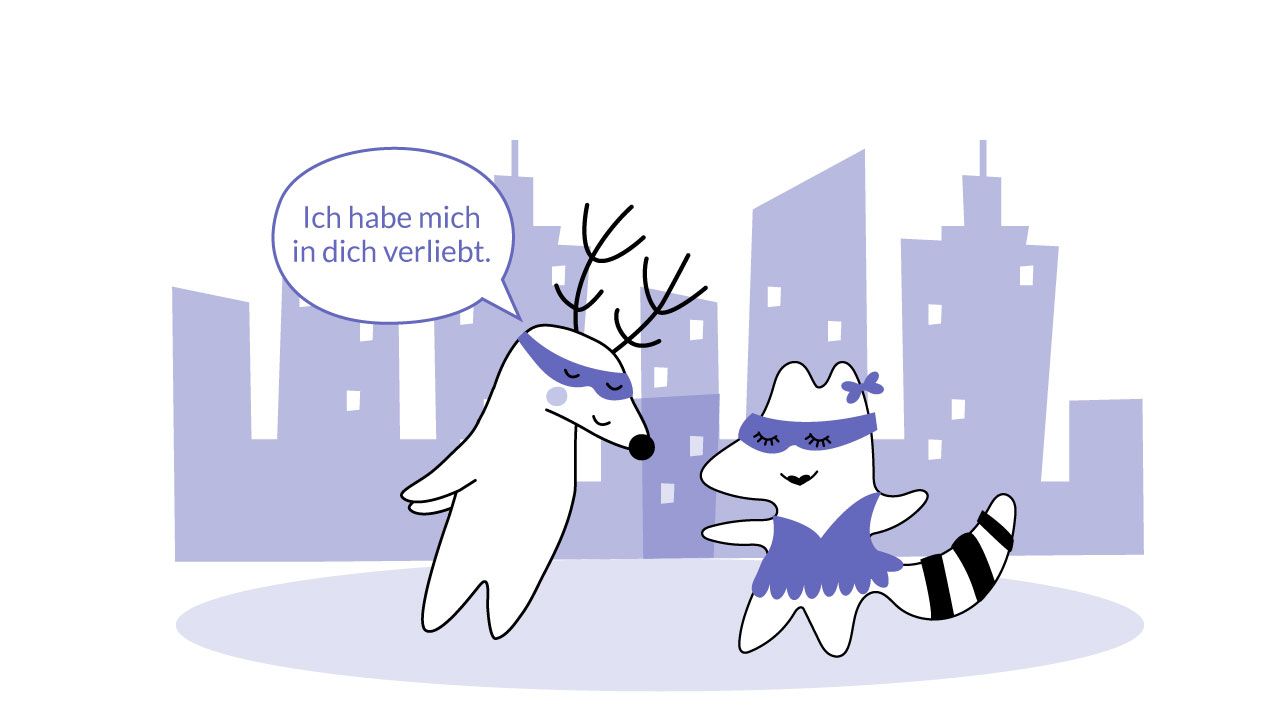
What About Grammar?
This phrase is a little more complicated than “Ich liebe dich” because it has two objects instead of one and is used in present perfect tense instead of the present simple. Nevertheless, it is not as difficult as it seems.
The German present perfect structure works similarly to the English present perfect.
In English the present perfect looks like this:
- Subject + auxiliary verb + past participle + object: "I have fallen in love with you."
Meanwhile, in German, people say:
- Subject + auxiliary verb + object +past participle: "Ich habe mich verliebt.”
Note how the object and past participle switch places.
The infinitive of the auxiliary verb "habe" would be “haben” (have) and the infinitive of the participle "verliebt" would be “sich verlieben” (fall in love). Different from the English language, "sich verlieben" in German is a reflexive verb, that is why you find “mich” (me) in the phrase.
Expressing Love to Friends and Family
Unlike other languages, the German expression “Ich liebe dich” is almost exclusively used in romantic relationships.
Nevertheless, Germans like to express their love for their friends and family too. In most cases, they say “Ich hab’ dich lieb,” which could be translated as “I have love for you.”
German
English
Ich hab’ dich lieb
I have love for you
What Does it Mean?
This time, “lieb” is an adjective, but it shares the same etymological origin as the verb “lieben” or “to love.” We’ve already gone over the words “Ich'' (I) and “dich” (you.).
The verb “hab’” comes from the infinitive “haben” (have) and is colloquially used in a short form instead of the original first-person singular form “habe.”
Sometimes you might hear “Ich hab’ dich gern,” which has the same translation as “Ich hab’ dich lieb.” To make it more intense, you can add “sehr” (so) as we showed you before in the phrase “Ich liebe dich so sehr,” but this time you add it before the adjective. So it would be:
German
English
Ich hab’ dich sehr lieb
I have so much love for you
When to Use it?
You can definitely say this phrase to your friends and your family. If you want to refer to several people, you can say “Ich hab’ euch lieb.” “Euch” is the German plural form for “you.”
There are also many couples making use of this phrase until they finally dare to say “Ich liebe dich” (I love you), as it might seem too strong for them at the beginning.
“I Like You” – “Ich Mag Dich”
When you make new contacts in Germany, you might hear the phrase “Ich mag dich” (I like you) from time to time, as Germans are usually direct and say what they think. They use the phrase in a general way to express their affinity for you.
German
English
Ich mag dich
I like you
So if you get to know somebody and you like the vibe of the person, you can definitely say “Ich mag dich” with a smile on your face. You will also probably hear it back.
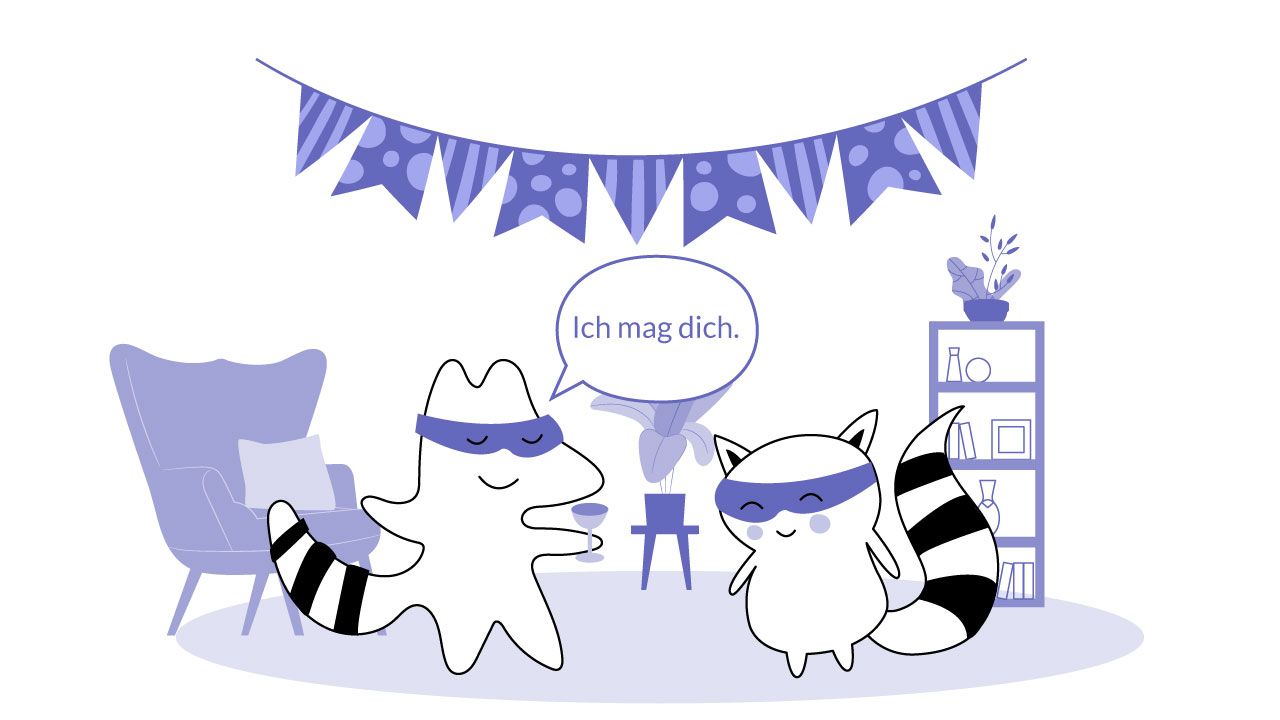
Germans also use this phrase if they are dating somebody and want to express that they start to really like the person. This also can indicate that they have feelings that soon may transform into “Ich hab’ dich lieb,” “Du bedeutest mir etwas” (we will discuss this further down), or someday even into an “Ich liebe dich.”
We Already Know the Structure of the Phrase
“Ich mag dich” works exactly like “Ich liebe dich” or “I love you.” The only difference is the use of another verb “mag,” which comes from the infinitive “mögen” (like). “Mag” is the first person singular of the verb.
If you want to express even more love, you can add a “sehr” (very) after the phrase. It would then be “Ich mag dich sehr.”
“Du gefällst mir” - A Different “I Like You”
While “Ich mag dich” can be used to express a general like, there is the phrase “Du gefällst mir,” that German people use more often when they feel attracted to somebody. The English translation would also be “I like you,” but in German, it has a different tone, which makes it sound a bit flirty.
German
English
Du gefällst mir
I like you (flitry)
Please be aware that people could misunderstand this phrase in certain situations and think you only like their physical appearance. To prevent that, you could say “Deine Art gefällt mir,” which would be something similar to “I like your way.” You just change “du” (you) to “deine Art” (your way).
“You Mean Something to Me” – “Du Bedeutest mir Etwas”
Another beautiful way of expressing your love is by telling somebody how important they are to you. German people do this by using the verb “bedeuten” (mean). If they want to tell somebody “You mean a lot to me,” they would say “Du bedeutest mir viel.”
German
English
Du bedeutest mir viel
You mean a lot to me
Some people want to express love even more strongly - in that case, they say “Du bedeutest mir alles,” which would be “You mean everything to me.”
German
English
Du bedeutest mir alles
You mean everything to me
There is also a very common sentence “Du bedeutest mir etwas,” which in English would be “You mean something to me.” People mostly use it to make someone aware that they feel something for them.
German
English
Du bedeutest mir etwas
You mean something to me
It can be used when talking to friends or lovers, but in most cases, it’s used when friends start developing romantic feelings for each other. That is why it sounds a little bit like a confession.
How Does Grammar Work?
The verb in this phrase is “bedeutest” which is in the second person singular form and comes from the infinitive “bedeuten” (mean). The last word of the sentence can be “etwas” (something) or “viel” (a lot) - or anything else you want to put there.
The object situation is a little more complicated here. We have the subject “Du” (you) and the indirect object “mir” that in English would be “to me.” So “Du” (you) is the active part in this sentence, which you use to conjugate the verb.
German Nicknames for Beloved Ones
Last but not least, let’s talk about German nicknames. That could be really helpful for you when you go to Germany - because some nicknames that Germans use might sound strange to you.
The Typical Ones
The most typical nicknames in love relationships are probably “Schatz” (treasure), “Liebling” (My Love), and “Süße(r)” (sweety).
German
English
Schatz
treasure
Liebling
my love
Süße(r)
sweety
However, when it comes to the last one, be aware that there is the feminine version “Süße” and the masculine version “Süßer”.
Animal Names are a Thing in Germany
Besides the typical pet names, Germans love to give their partners animal nicknames. You might hear couples calling each other “Maus” (mouse), “Hase”(rabbit), “Bär” (bear), “Schnecke” (snail). In this case, creativity is boundless.
You might often hear those nicknames in their diminutive form, which in German is created with the suffix “-chen.” People then say “Mäuschen, Häschen, Bärchen, Schneckchen” (little mouse, etc.).
As you may have noticed, in the diminutive form the vowel sometimes changes into an Umlaut (ä, ü, ö). Unfortunately, there are no strict rules that define when to do this or not - that’s a topic for later in our blog.
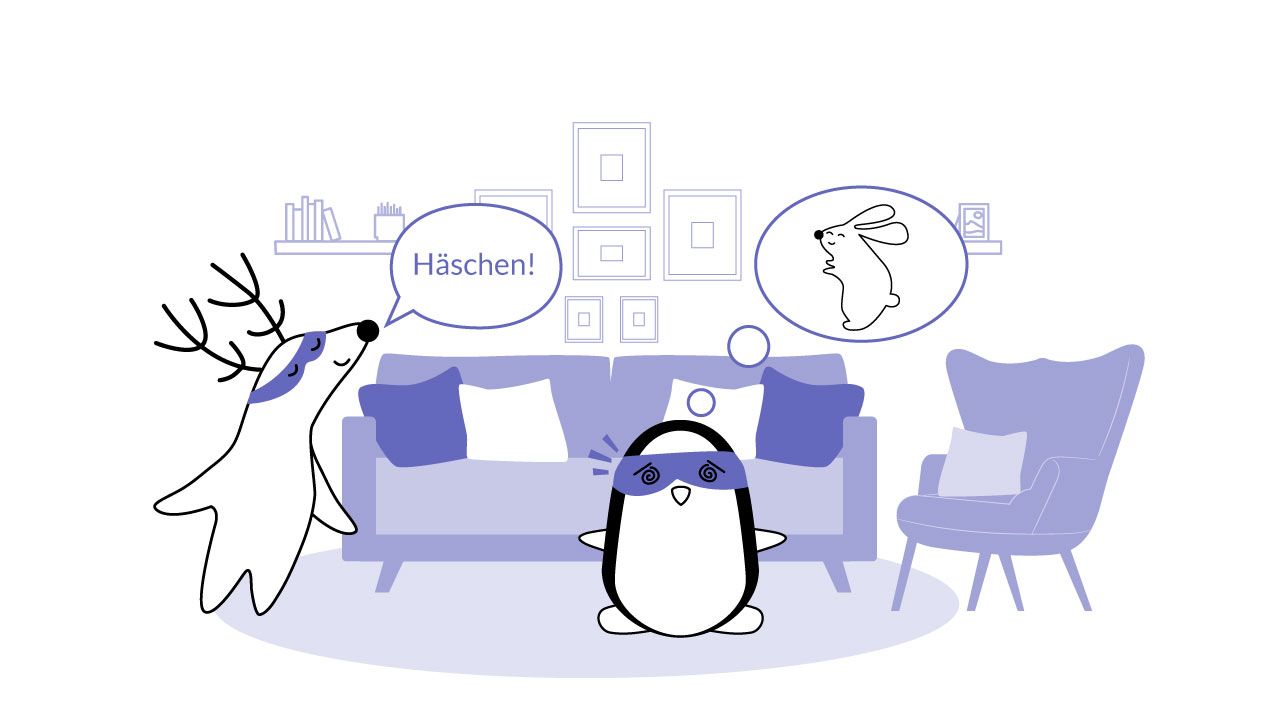
What Have You Learned?
In this article, we have shown you how to express your feelings for somebody in German and how German people usually express their feelings. Let’s shortly recap:
If you love somebody like no one else on this planet, it is definitely the right time to say "Ich liebe dich" to that person.
To express your feelings in a deep friendship or to your family, you can make use of "Ich hab' dich (sehr) lieb," or "Ich hab' euch sehr lieb." It means “I have love for you.”
In the case that you want to tell somebody that you like them, even if you’ve just met them, you can say "Ich mag dich" (I like you). And if you feel attracted to someone and you want to express that, you say "Du gefällst mir" which means “You mean something to me.”
The German language might not sound as lovely as other languages, but there are definitely many ways to express love in it. We hope that now you feel prepared for expressing your feelings for Germans - and we hope that romantic situations work out for you.
And if you want to practice, check out our Langster app. There, you can learn and practice new words in context, listen to short stories read out loud by German native speakers, and get access to quick grammar explanations. See for yourself:
Learn German with Langster






